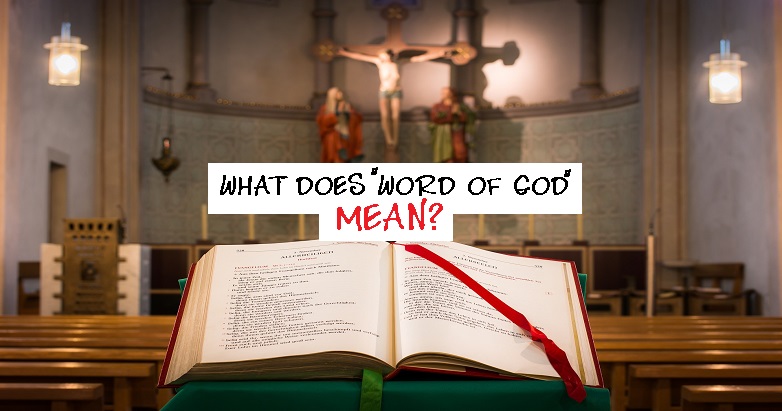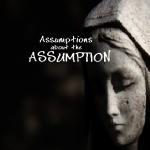
Word of God, the expression, rolls off the tongue for Christians—but what does it even mean?
Catholics and other Christians use the expression “word of God” all the time and apply it to the Scriptures, the sayings of God and Jesus in those Scriptures, and especially to Jesus.
But what does “God’s word” mean? If we are honest, we’d admit the expression “God’s Word” is ambiguous. Humans use words, but what about God? Could it be that when we call either Jesus or the Bible the “Word of God,” we mean something very human?
We are talking about revelation, of course. But what is revelation anyway? It’s a lot like asking about the meaning of the “God’s utterance.” Catholics and other Christians say “amen” and head nod to these things but seldom critically reflect on them.
Here is a video presentation about “Word of God”—
Word of God = God’s Human Word
When we call the Bible the “God’s Wprd,” we mean to say that it is God’s human word. In other words, the Bible is God’s inspired self-communication or “word” in many messy human words and stories. “God’s word” is a human reality—being divine makes it more human, not less.
Therefore, the “God’s word” does not mean something chemically isolated from humanity. There is no such thing as a “pure” word of God. God did not physically write the Bible or dictate its contents. Therefore the inspired authors are not comparable to secretaries or stenographers. The Church does not accept a plenary view or dictation theory of inspiration. To hold such a view is absurd. Indeed, inspiration is messy!
The expression “word of God” implies a communicator, communication, and a recipient to the communication. What good is a word without a listener? But is it easy to hear God’s communication? What amount of effort goes into discerning revelation?
Receiving the divine word is messy. Who can be metaphysically certain that they interpreted their experience with God correctly? God communicates to us exclusively in ways conditioned by our history and culture. How we understand, interpret, and express divine revelation is always limited. That’s true of the inspired authors of Scripture also.
Divine Word as Revelation
Look here—
Revelation > Tradition > Scripture.
According to official Catholic teaching, revelation is greater than Tradition, which is greater than Sacred Scripture. The divine word is not only to be found in the Bible or in our Tradition. Every created thing is filled with the word of God.
Revelation means God’s self-disclosure. Therefore, the Holy and Absolute Mystery called “God” is both the “Revealer” and the content of what is revealed. Thus, revelation is not limited to Catholic Tradition or Sacred Scripture because God is—or at least can be—disclosed in all things. This is the basic Catholic understanding of sacramentality.
Transmission of the Word of God
Tradition means “the transmission of divine revelation.” Since revelation is always received according to the mode of the receiver, and the recipients are human, revelation and its transmission must be a messy business!
Scripture is the normative and inspired part of Tradition. But by “inspired,” we do not mean that God dictated it a set of books (God did not dictate the contents of the Bible—and the Scriptures are not cognitively inerrant). When we call the Scriptures the word of God, we mean that we are dealing with something that has two aspects. One aspect is divine, and the other, human.
God’s word is a messy business. Therefore, to call the Bible “God’s word” means “God’s human word”—and that is definitely messy. By “Word of God,” we mean God’s self-expression in many messy human words, given throughout a library (ta Biblia), which is normative literature for Christians. The Bible presents a first word for the Church, but it is not the only word about God and humankind, and it definitely is not the final word about God and humanity.
There is much more to say. We’ll come back to this topic soon.
















